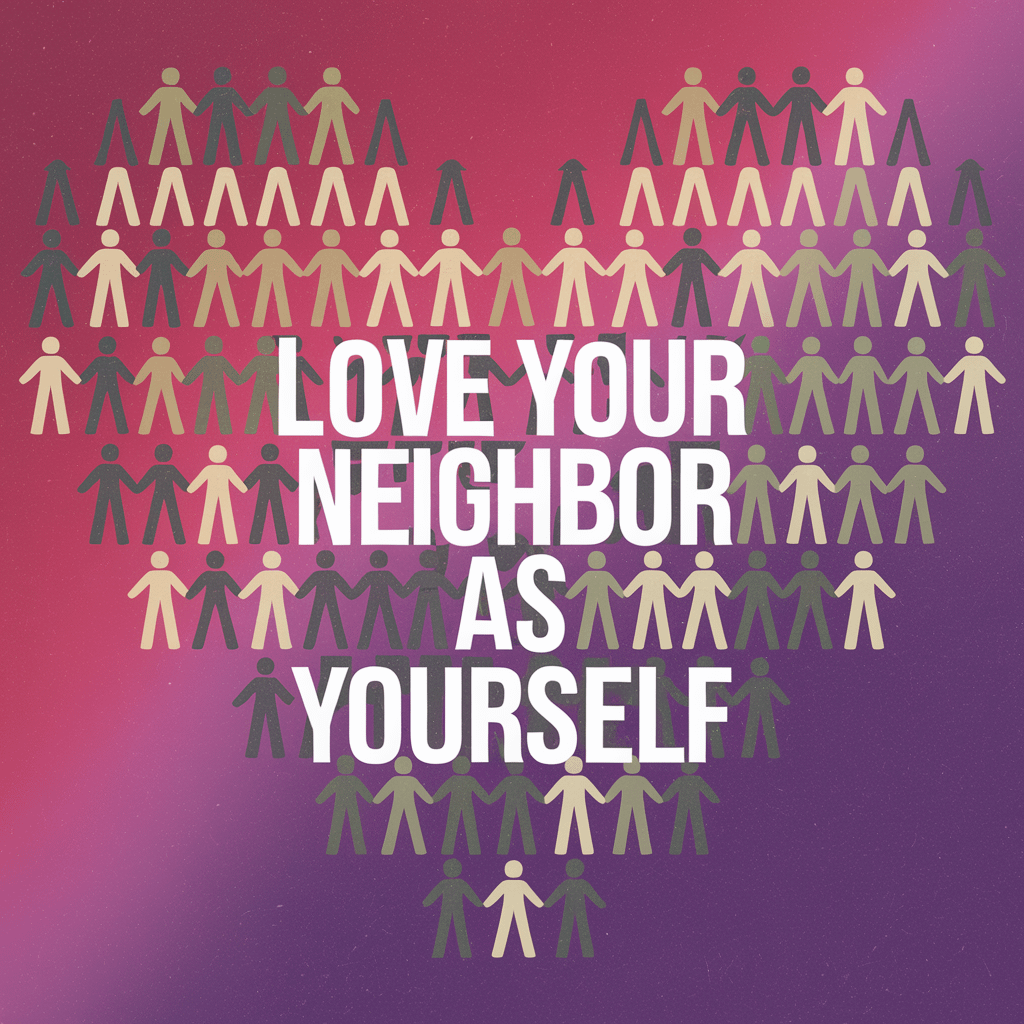Summary
James 2:1-13 addresses the pervasive issue of favoritism within the church, calling believers to a higher standard of impartiality. This article delves into the biblical perspective on showing preference based on appearance or social status, highlighting how it contradicts God’s character and His choices. It emphasizes the “royal law” of love and the importance of mercy in our interactions. The piece concludes with practical applications and a Christ-centered approach to overcoming favoritism, encouraging readers to reflect God’s impartial love in their daily lives.
Faith Un-Packed Discussion Podcast Episode
Swift Sage Shorts
Thread
Reflections on James 2:1-13
Have you ever found yourself treating people differently based on their appearance or social status? This is a common struggle, even within the church. The Book of James addresses this issue head-on, challenging us to examine our hearts and align our actions with God’s love and mercy.
The Problem of Favoritism
James 2:1-13 exposes a familiar evil that often goes unnoticed in our lives: favoritism. This subtle sin can creep into our interactions, causing us to prioritize some people over others based on superficial characteristics like wealth or social status. But as followers of Christ, we’re called to a higher standard.
Understanding Favoritism Through Scripture
A Familiar Evil (James 2:1-4)
James presents a scenario where two people enter a church gathering – one wealthy and well-dressed, the other poor and in shabby clothes. The congregation’s response reveals their hearts:
– They give the rich person special treatment and a place of honor
– They relegate the poor person to a less desirable position
This favoritism creates sinful divisions within the body of Christ and puts us in the position of unjust judges. It directly contradicts God’s impartiality (Acts 10:34-35, Romans 2:11) and the unity He desires for His church.
God’s Surprising Choice (James 2:5-7)
James challenges our worldly perspective by reminding us of God’s upside-down kingdom values:
1. God often chooses the poor to be rich in faith and heirs of His kingdom
2. The rich are often the ones who oppress believers and blaspheme Christ’s name
By showing favoritism to the wealthy, we may inadvertently exalt those who oppose God’s purposes while rejecting those He has chosen.
The Royal Law of Love (James 2:8-11)
James quotes Leviticus 19:18, “Love your neighbor as yourself,” calling it the “royal law.” This command, emphasized by Jesus as the second greatest commandment (Matthew 22:39), summarizes how we should treat others. Favoritism directly violates this law of love.
Importantly, James doesn’t allow us to categorize favoritism as a “minor” sin. He argues that breaking any part of God’s law makes us lawbreakers, putting favoritism on par with other sins we might consider more serious.
Mercy Triumphs Over Judgment (James 2:12-13)
Finally, James reminds us of the mercy we’ve received through Christ and calls us to extend that same mercy to others. He warns that “judgment without mercy will be shown to anyone who has not been merciful” (James 2:13). As recipients of God’s incredible mercy, we’re called to reflect that mercy in our treatment of others.
Applying God’s Word to Our Lives
1. Recognize favoritism for what it is: A sin that rebels against God’s choice, His law, and His mercy.
2. Reflect on God’s mercy: Remember the undeserved grace you’ve received through Christ’s sacrifice on the cross.
3. Live out your faith: Allow God’s mercy to transform your interactions with others, regardless of their social status or appearance.
Christ Connection: The Ultimate Example
Jesus, our perfect example, consistently reached out to the marginalized and rejected societal norms of favoritism. He touched lepers, ate with tax collectors, and honored women and children. By following His example, we can overcome our tendency toward favoritism and truly love our neighbors as ourselves.
Practical Steps for Overcoming Favoritism
1. Pray for awareness: Ask God to reveal any hidden favoritism in your heart.
2. Intentionally engage: Make an effort to connect with people you might normally overlook.
3. Practice hospitality: Invite a diverse group of people into your home or life.
4. Serve the marginalized: Look for opportunities to practically serve those society often neglects.
5. Meditate on Scripture: Regularly reflect on passages that emphasize God’s impartiality and love for all people.
As we grow in recognizing and rejecting favoritism, we’ll become more effective witnesses of Christ’s love and build a church community that truly reflects God’s heart for all people. Let’s commit to treating everyone with the dignity and respect they deserve as bearers of God’s image, regardless of their outward circumstances.
Sharable Quote-Graphics



FAQs
1. What is favoritism, and why is it a problem within the church?
Favoritism is the act of treating people differently based on superficial factors like wealth, appearance, or social status. It’s a subtle sin that contradicts God’s impartiality and creates division within the body of Christ. By prioritizing certain individuals over others, we undermine the unity and love that should characterize the church.
2. What does the Book of James say about favoritism?
James 2:1-13 directly addresses the issue of favoritism, exposing it as a sin that violates God’s law and His desire for unity within the church. James uses the example of showing preference to a wealthy person over a poor person, highlighting how this behavior contradicts God’s choice to often bless the poor with faith and make them heirs of His kingdom.
3. How does favoritism contradict the “royal law” of love?
James refers to Leviticus 19:18, “Love your neighbor as yourself,” as the “royal law.” This command, echoed by Jesus, summarizes how we should treat others. Showing favoritism directly violates this law because it prevents us from loving all people equally and unconditionally.
4. Does God show favoritism?
No, Scripture clearly states that God shows no favoritism (Acts 10:34-35, Romans 2:11). He loves and values all people equally, regardless of their social standing, wealth, or appearance. He often chooses the humble and overlooked to demonstrate His power and grace.
5. How can we recognize favoritism in our own lives?
We can recognize favoritism by honestly examining our attitudes and actions. Do we gravitate towards certain individuals based on their outward circumstances? Do we offer preferential treatment to some while neglecting others? Asking God to reveal any hidden favoritism in our hearts is crucial.
6. What are some practical steps to overcome favoritism?
Overcoming favoritism requires intentional effort. We can:
- Pray for awareness: Ask God to reveal any hidden biases in our hearts.
- Intentionally engage: Make an effort to connect with people we might normally overlook.
- Practice hospitality: Invite a diverse group of people into our homes and lives.
- Serve the marginalized: Seek opportunities to serve those who are often neglected by society.
- Meditate on Scripture: Regularly reflect on passages that emphasize God’s impartiality and love for all.
7. How did Jesus exemplify overcoming favoritism?
Jesus consistently reached out to the marginalized and rejected societal norms of favoritism. He touched lepers, dined with tax collectors, and honored women and children. His example serves as a powerful reminder to treat everyone with dignity and respect, regardless of their social status.
8. What are the benefits of overcoming favoritism in the church?
By overcoming favoritism, we become more effective witnesses of Christ’s love and build a church community that reflects God’s heart for all people. We create an environment of genuine unity, love, and acceptance where everyone feels valued and respected.

Glossary of Christianeze Words
Favoritism: The act of showing preferential treatment to certain individuals or groups based on arbitrary factors such as wealth, social status, or appearance, often resulting in unfair advantages and disadvantages.
Impartiality: The quality of treating all people equally and fairly, without bias or prejudice, based on the understanding that all humans are created in God’s image and have inherent worth.
Royal Law of Love: The command to “Love your neighbor as yourself,” summarized from Leviticus 19:18 and emphasized by Jesus as the second greatest commandment (Matthew 22:39), serving as a foundational principle for ethical conduct and Christian living.
Mercy: Compassionate and forgiving treatment of someone who deserves punishment or judgment, reflecting God’s undeserved grace and forgiveness towards humanity through Christ.
Marginalized: Individuals or groups who are excluded, disadvantaged, or pushed to the fringes of society due to factors like poverty, social status, disability, or ethnicity, often facing systemic barriers and injustices.
Hospitality: The act of warmly welcoming and generously providing for guests or strangers, creating a space of belonging and extending kindness regardless of social differences or personal gain.
Study Questions
Context
1. What was happening in the early church that might have prompted James to address favoritism?
2. How does this passage connect to Jesus’ teachings about loving others?
Observation
1. What scenario does James describe in verses 2-3?
2. How are the rich and poor people treated differently in this example?
3. What words or phrases does James use to describe favoritism?
4. What does James call the command to “love your neighbor as yourself”?
5. How does James connect showing favoritism to breaking God’s law?
Meaning
1. Why do you think James uses the example of rich and poor people to illustrate favoritism?
2. What does this passage reveal about God’s view of social status?
3. How does showing favoritism contradict faith in Jesus Christ?
4. What does James mean when he says “mercy triumphs over judgment” (v. 13)?
5. How does this passage relate to the overall message of James about living out our faith?
Application
1. In what ways might you be tempted to show favoritism in your daily life?
2. How can remembering God’s mercy toward you help you treat others impartially?
3. What practical steps can you take to love and honor people who are different from you?
4. How might your church community work to overcome favoritism and welcome all people?
5. What’s one way you can intentionally show God’s love to someone you might normally overlook this week?

